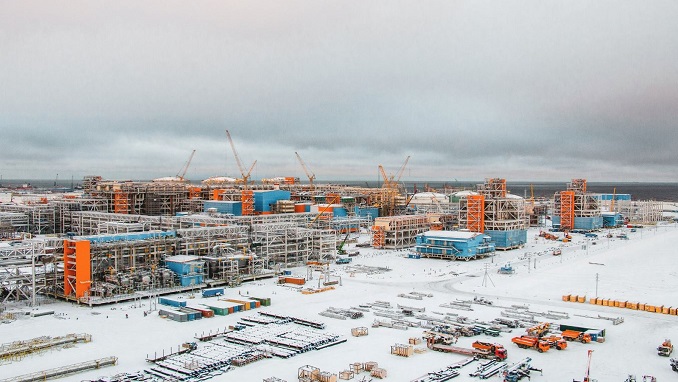Climate change could have dramatic consequences for Russia’s energy-rich Yamal peninsula, the region’s Minister of Natural Resources, Aleksandr Kalinin has said, according to The Barents Observer.
The Yamalo-Nenets region in the Arctic has become Russia’s number one petroleum region in recent years. The country’s leading oil and gas companies are today eagerly engaged in a major build-up of new fields, plants, infrastructure, and commuter settlements across the peninsula.
Kalinin said at a recent event that his region has “the most pessimistic outlooks as outlined by the climatologists,” and made clear that consequences would be “horrendous” if the ground loses the ability to carry infrastructure and industrial plants.
“This is a very, very serious issue which we have to take into account,” he said while emphasizing that the risks will significantly be felt on regional economy already in 5-10 years.
“The problem with global warming in these kind of huge infrastructure projects is not tomorrow’s problem, already today we have to include the technological decisions and I know that the leading extracting companies in the region are working on this.”
The development of oil and gas resources has made the Yamalo-Nenets region a strategically key player in Russian economy. Its importance has become significant also in international affairs. The lion’s share of the natural gas produced in the giant Bovanenkovo field is exported by pipeline to the EU and the liquified gas produced at Novatek’s Yamal LNG makes its way from Sabetta to Rotterdam and East Asian countries.
About 90 percent of Russia’s natural gas and about 12 percent of oil is today produced in the Yamalo-Nenets region, and a number of new fields are up for development in the years to come. Among them are the Tambey fields that are believed to hold more than 7 trillion cubic meters of gas.
In a comment to The Barents Observer, Kalinin underlined that the risks following global warming are now carefully and comprehensively being studies both by companies and the government. “If we have sufficient understanding of the risks, we can develop mechanisms to handle them,” he said.












